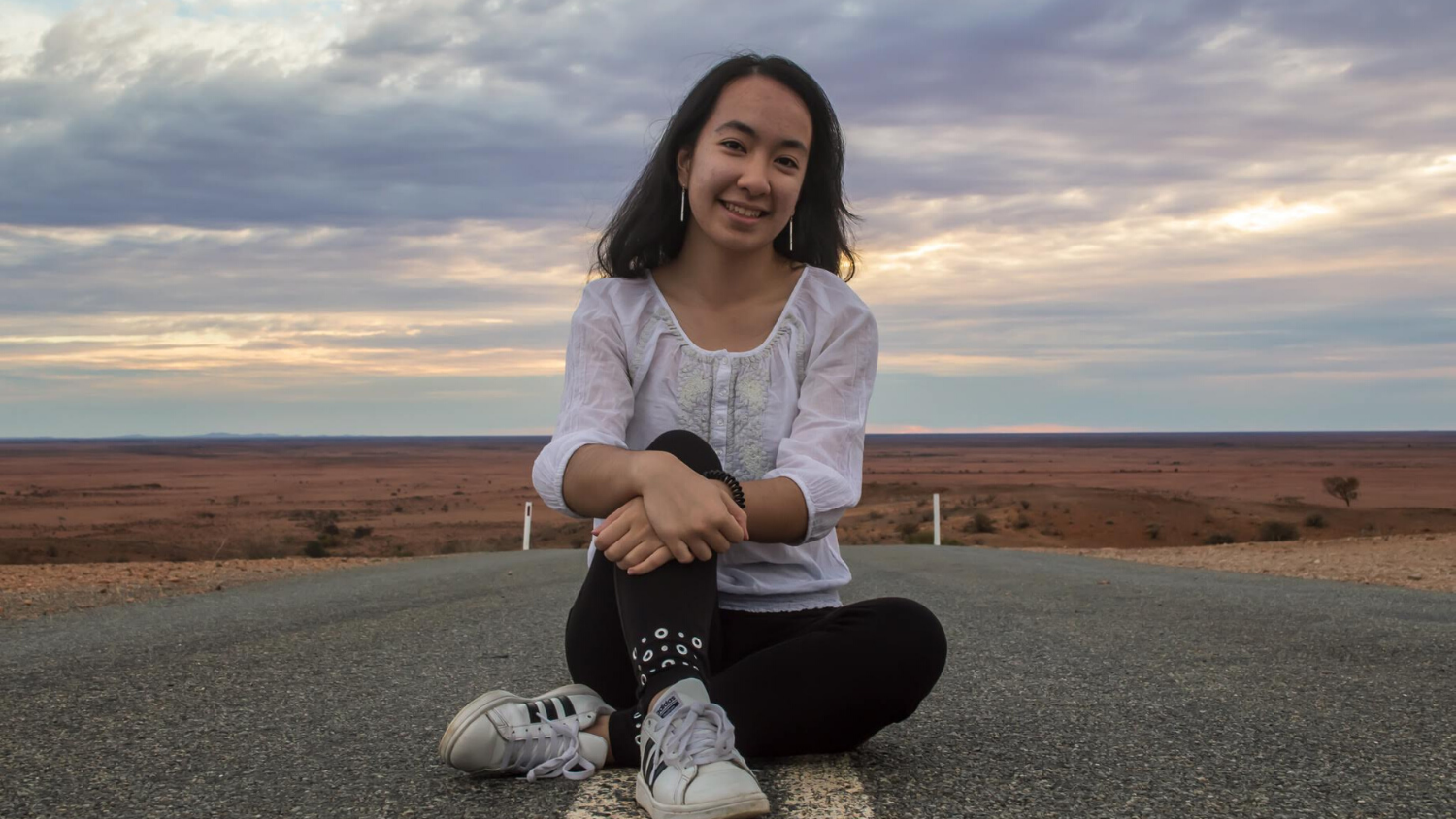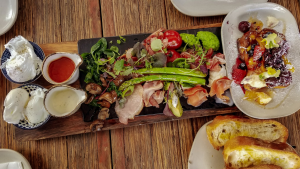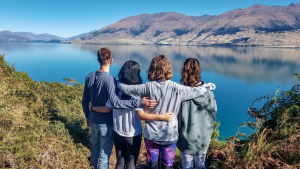Meet Emilie Phan

Program and Location:
Spring, University of Adelaide; Adelaide, Australia
Major/Minor:
Textile Engineering
Why did you choose to study abroad?
I’ve always known that I was interested in studying abroad because I never had the opportunity to explore different areas of the world; doing so during your college career is the optimum time. The combination of studying abroad allows you to travel an area of your interest for an extended amount of time to truly immerse yourself within the town, experience more than just the touristy areas, and get to know people who call this area their home.

What did you learn about yourself?
In a new country far from home, I was always nervous about my ability to survive on my own. Even though I have survived years of living on campus, my home was less than an hour away, and if I needed anything my parents would be able to help me within a week. Abroad, I was responsible for my rent, my eating, and my health. After looking after myself for six months, I realized the types of living situations I prefer. Moreover, I built confidence in myself that I am capable of surviving and adulting. As someone who is most likely going to leave the state for a full-time job, I was always hesitant about if being far from home was a reasonable option for me mentally and physically. After my experience being much further from home than I will ever be, I was able to visualize my future a lot more clearly. I enjoyed the adventure and I could thrive on my own!
What was one of your favorite parts of your program?
When you are in a new area for a limited amount of time, there is an urgency to get out of your comfort zone and do as much as you can. This mindset allowed me to not shy away from opportunities for reasons either from nervousness or money. I made sure to block off time for myself every week, even to walk to different areas if the city I was staying in, to make sure I knew the city. This is something that I’ve brought back with me to Raleigh. Being born in this city, Raleigh seemed like an area that I would always have time to explore later. Now, thinking about where my future will lead me, my time in Raleigh is slowly but surely coming to an end. I am taking the time and effort to discover corners of Raleigh I hadn’t before and to appreciate it for what it has provided me all these years.

What advice do you have to future study abroad students?
Contact the Study Abroad Office or the Global Village on NC State’s campus to see if they can connect you with anyone from the country where you’ll be studying abroad. If you are signing up for an exchange program, there will be people on campus the semester before you go who you can speak with. They will have more detailed answers and specific tips that you might not have thought of asking. This will also allow you to create connections with people from the host country beforehand in case you run into any issues once you are in the country.
How were your classes abroad different than if you would have taken them at NC State? Did you take any field trips or do anything outside of the traditional classroom?
The difference for classes specifically is the weight homework, assignments, and final exams had on your final grade. All my classes weighted the final exam at 50% or higher of my final grade. Homework and exams during the year had much smaller percentages than what I am used to in the United States. This allowed me more time during the semester to travel and experience the city without stress. Yet, the two weeks of break before our exam time was one of the most stressful because a lot was riding on my final exam performance. While my classes did not include any field trips, my friends and I found some time to travel to the major cities of Australia. We also flew to New Zealand to take a road trip of the southern island. During the break between the last day of class and finals weeks, we took a small trip to the outback to experience the famous isolation.

In what ways did your identity have an impact on your experience abroad?
As an Asian American traveling to a country that was closer to Asia in a city with a diverse Asian population, I was more than excited to see the difference from Raleigh. NC State works hard to encourage diversity and inclusion, but it does not hide the fact that the ratio of ethnicities on campus is not representative of that of the American population. Going to a city that had a larger number of people who looked like me was exciting. I was excited to explore new activities, eat authentic Asian foods, and in general experience a life that is like a big city I hope to move to after college. With Chinatown being a 15-minute walk away, I visited often! In all honesty, the Asian aspect of my Asian American identity had less negative encounters than when my accent gave off that I was American. Though it did not have a huge impact on how I was treated or my experience abroad, I originally felt more included in a community off the bat even though I was a newcomer.
Is there any advice you would give to other students who share your identity?
As someone who has been positively changed by studying abroad, I came back eager to share my stories. I wanted to show that students who look like me, come from the same background as me, and are in STEM majors that it is more than a possibility, it can be a reality. For me, being a first-generation Asian American with immigrant parents, my parents were very nervous about the thought of me leaving the country. Most of my preparation was ensuring that my parents knew I would be safe and in good hands with the study abroad offices from both universities. I made sure my parents felt comfortable with my ability to take care of myself. For the first few weeks I was gone, I sent pictures and updates often to allow them to get a better feel of how my semester was going to look. My advice is to do that and more. Making sure your family members are comfortable with the idea of going abroad is important because it can make or break our experience, even if they are across the world from you.

Where did you find support to navigate any challenges you faced abroad?
I participated in a semester exchange program, so the ability to travel with other NC State students was very helpful. There was a major difference in the way the University ran compared to in the United States the school ran. I found that campus life there was like high school in the U.S. At the University of Adelaide, and most schools in Australia, there are no on-campus dorms. This means that students left for home after classes ended. Since students had to commute to and from classes, organizations and clubs could ask for limited time and involvement. So, the people I spent time with and the friends I made were mostly international students because they lived in apartments within the city as I did. Having the community of NC State students who are experiencing similar feelings of being far from home was nice when I needed someone to talk to who would understand what I was going through. My roommate was my major support system abroad because she was a close friend from my major, so she was my piece of home when I was sad or frustrated. There are many international students in Australia who also experience homesickness and cultural changes. So, there are many resources that focus on helping these students as well as a larger community of international students that can support each other.
Would you do it again?
I don’t even have to think about it, yes!